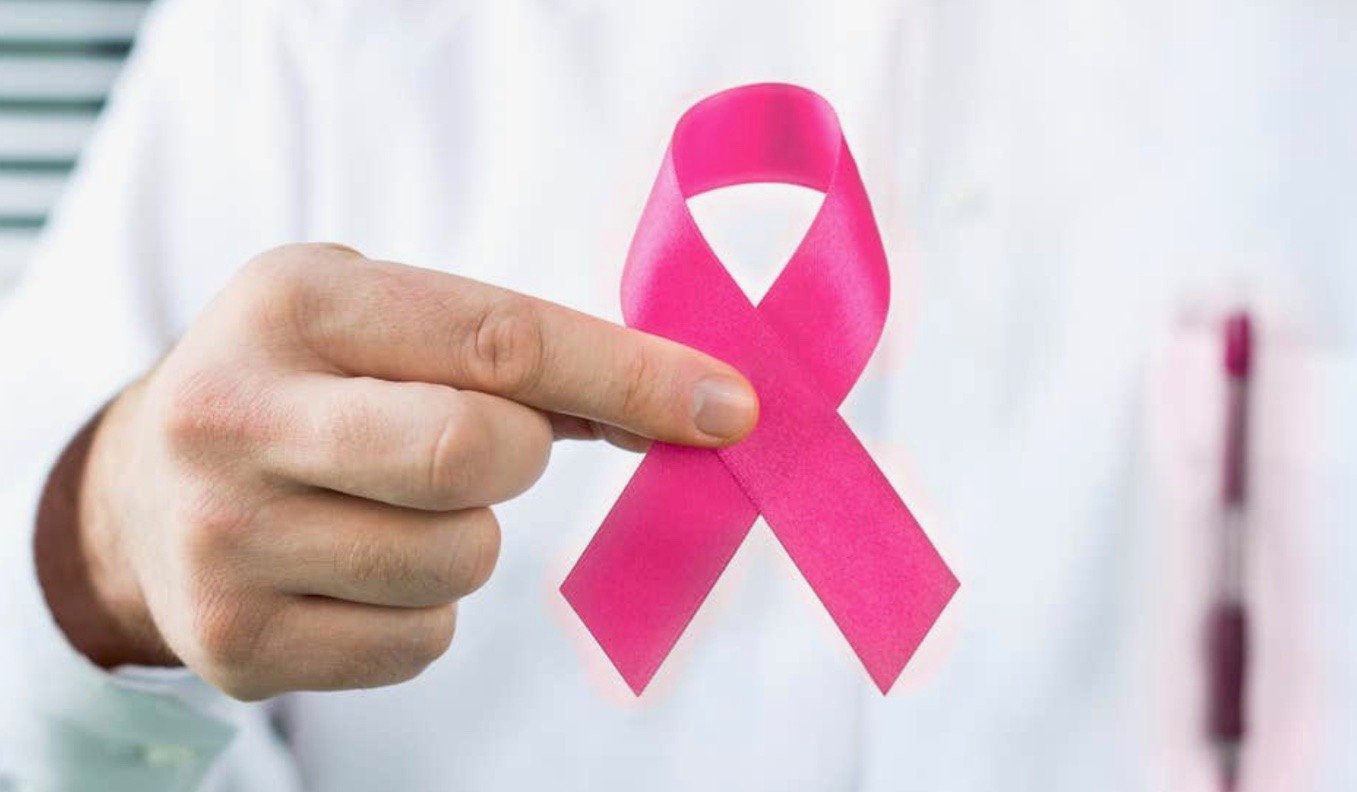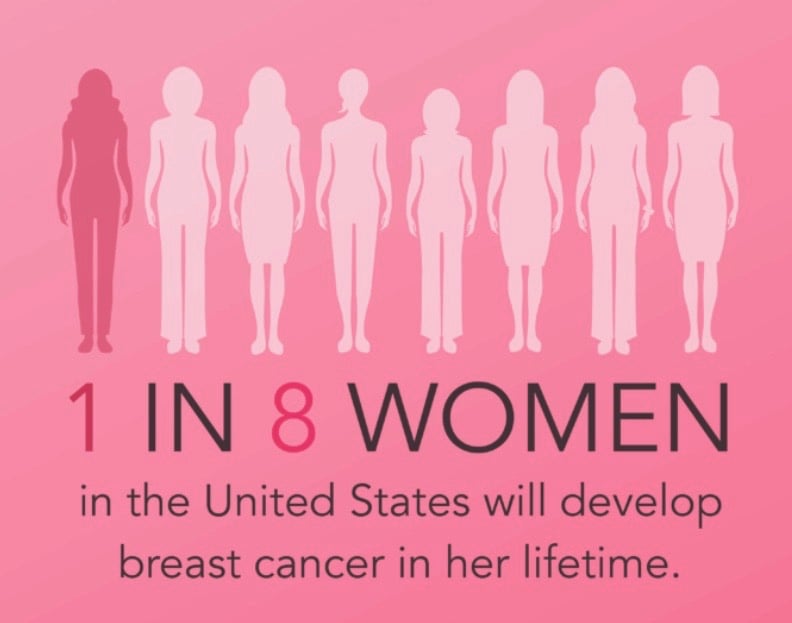
Facts about breast cancer in the United States:
- After skin cancer, breast cancer is the most common cancer among American women.
- Each year in the United States, more than 245,000 women get breast cancer and more than 40,000 women die from the disease.
- Most breast cancers are found in women who are 50 years old or older, but breast cancer also affects younger women. About 10% of all new cases of breast cancer in the United States are found in women younger than 45 years of age.
- Healthy lifestyle choicesmay help lower your risk of different types of cancer and other health conditions such as heart disease, diabetes and osteoporosis.
- Lifestyle changes are shown to be important in the prevention of breast cancer.
- Although not all the behaviors listed below lower the risk of breast cancer, they are good for overall health.

Everyone should aim to:
- Be physically active (get regular exercise).
- Achieve and maintain a healthy weight. (People diagnosed with breast cancer who are overweight or obese should limit high-calorie foods and beverages and increase physical activity to help with weight loss.)
- Eat at least 2 ½ cups of fruits and vegetables every day.
- Choose 100% whole grain foods (such as 100% whole grain breads and cereals, brown rice, millet and quinoa).
- Limit red meat and processed meat. Choose chicken, fish or beans more often.
- Limit "bad" fats (saturated and trans fats). These are found in foods such as red meat, fatty deli meats, poultry skin, full fat dairy products, fried foods, margarine, donuts and microwave popcorn.
- Eat "good" fats (polyunsaturated and monounsaturated fats). These are found in foods such as olive and canola oil, nuts and natural nut butters, avocados and olives.
- Limit alcohol to less than 1 drink a day for women and fewer than 2 drinks a day for men.
- Recognize that at this time, research does not show organic foods are more nutritious or better for you than foods farmed by conventional methods. Organic foods do not appear to lower the risk of breast cancer or overall cancer
For those with breast cancer,
- How we live can have profound effects on our health and wellness. This also applies for people who have cancer.
- Healthy living means making positive behavior changes as part of an ongoing, life-long process.
- Choose areas for improvement, consider “Mix of Six.”
- Having a network of supportive people is very beneficial for your health, especially emotional support.
- Studies have shown people with cancer who have the most social support had better quality of life and lived longer.
2. Manage stress
- Reducing your stress level can help you maintain your physical and mental health.
- Use relaxation techniques, such as guided imagery, meditation, and yoga.
- This improves your health, coping ability, mood, weight control, memory and attention, and more.
- Set a bedtime and stick to it. Keep weekday and weekend bedtimes similar.
- Try to have your bedroom as dark as possible.
- Keep the bedroom temperature cool.
- Avoid screen time before bed. This includes time spent on TV, smartphones, and backlit tablets.
- Avoid stimulants like caffeine, alcohol, and sugar.
- Exercise during and after cancer treatment.
- Develop a fitness routine that is safe for you.
- Incorporate physical activity into family events, time with friends, and trips.
- Be sure to talk to your health care team about developing an exercise plan that is appropriate for you.
- A healthy diet can help you manage cancer side effects, recover quicker, and improve health. It may also lower your future risk of cancer.
- Make vegetables your main course, not just a side dish.
- Eat foods high in fiber. These include whole grains, beans, peas, lentils, nuts, and seeds.
- Include probiotic and prebiotic foods to support a healthy gut.
- Avoid processed meats, such as sandwich meats, hot dogs, sausages, bacon, and salami.
- Eat smaller portion sizes. Use smaller plates and bowls when you eat.
- Sometimes, our bodies mistake thirst for hunger. Try drinking water first if you are feeling hungry.
- Avoid high-calorie, low-nutrient foods. These include sodas, fruit-flavored drinks, candy, and sweets. Choose fruit or dark chocolate in small portions as alternatives to sweets.
- Eat less refined “white” foods. These include white bread, white sugar, and white rice. These foods are processed in a way that removes fiber, vitamins, and minerals.
- Limit alcohol. Men shouldn’t have more than 2 alcoholic drinks per day. Women shouldn’t drink more than 1 alcoholic drink per day.
- Consider working with a dietician who is knowledgeable about cancer nutrition
- Limit your exposure to environmental toxins that can increase a person’s risk of cancer and other illnesses
In Summary,
- It's never too late to adopt a healthy lifestyle
- A healthy lifestyle can support cancer treatments and help you feel better. It may also improve your long-term health.
- Lifestyle changes seem to be an easy, effective, and economical way to help prevent breast cancer.
- In women who are diagnosed and are under treatment for breast cancer, lifestyle changes can reduce the recurrence rate and increase the chance of survival.

